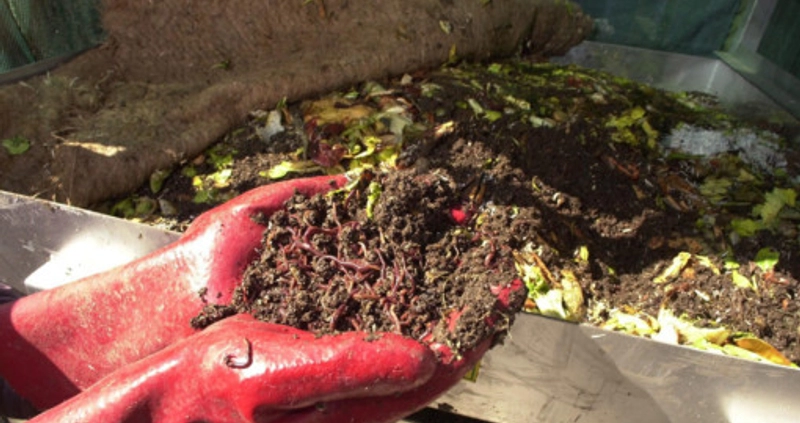South Africa needs empowered and successful youth entrepreneurs in the environmental industry

Composting businesses could play a huge role in addressing challenges of unemployment and food security. (AP Photo/Elise Amendola)
Siwaphiwe Myataza-Mzantsi
Grooming entrepreneurial spirit among the youth is a crucial element in addressing the unemployment crisis.
The 8th annual Green Youth Indaba 2023 is yet another crucial intervention by the Department of Forest, Fisheries and the Environment to remind young people not only to get involved in the green economy, but to be key players and thought leaders.
Do we know how many compost businesses are owned by young black people in South Africa? I am asking because in every household in rural areas, there’s a bucket ready to store manure and leftover foods until ready to be added to the soil to help plants grow – this is compost. The compost is used to prepare and preserve the soil for planting. Is this monetised in rural areas? No.
The compost that we produced at our homestead used to assist us in fertilising my late grandparent’s harvest fields where we worked and helped as teens during school holidays. We never bought cabbages, spinach, potatoes, carrots and maize; we harvested from the fields. Had we turned that into a family business, we would have come far by now.
I sometimes wish to have understood how that exposure and free training would benefit my life, but unfortunately I lacked knowledge on the rich careers that one finds in the agriculture and environmental sector.
If there’s anything that the elders passed to us, the youth from black communities, it is involving us in environmental and green economic activities without even having knowledge on how that participation could benefit our careers later in life.
The only thing that perhaps has always lacked in rural areas is terminologies and the labelling of each activity that was being done – maybe this could be blamed on language barriers. For example, I have made compost all my life growing up in the cold and foggy village of Ngcele in Tsolo, but I got to know that people do it as a business when I arrived in the Western Cape for my university education.
The terminology used is “Composting business”, which I believe could play a huge role in addressing our challenges of unemployment and food security.
A study conducted by joint scholars from University of the Witwatersrand titled: Food insecurity and coping strategies and their association with anxiety and depression, suggests that one in five South African households begs for food and that 20.4 % of South African households are food insecure, with the most affected being from the lowest socio-economic groups.
Due to the persisting challenge of food security, people are finding coping mechanisms to deal with food insecurity, like eating less expensive food, borrowing food or money, using credit, relying on relatives or friends, limiting portion sizes or the number of meals per day and even begging for food.
How do we advocate for a South Africa where young people are empowered and successful entrepreneurs in the environmental industry? A start would be to add environmental studies to our school curricula. Let my 10-year old niece have a full-time subject in which she learns about environmental protection, recycling, waste management, environmental technology, composting businesses and many other beneficial green economy activities.
At the moment, South Africa faces the highest unemployment rate the country has ever seen. Graduates find themselves in dire circumstances, lacking opportunities. Training young people on crucial skills like entrepreneurship and financial literacy would bring relief to the country’s unemployment rate.
I am glad to witness a proactive department where the eighth annual Green Youth Indaba is used as a vehicle to continuously groom entrepreneurial spirit and ability among young people within the environmental industry. This will help us create a generation of successful job creators, innovators and world changers.
*Myataza-Mzantsi is a political science graduate from UWC and writes in her personal capacity.




Leave a Reply
Want to join the discussion?Feel free to contribute!